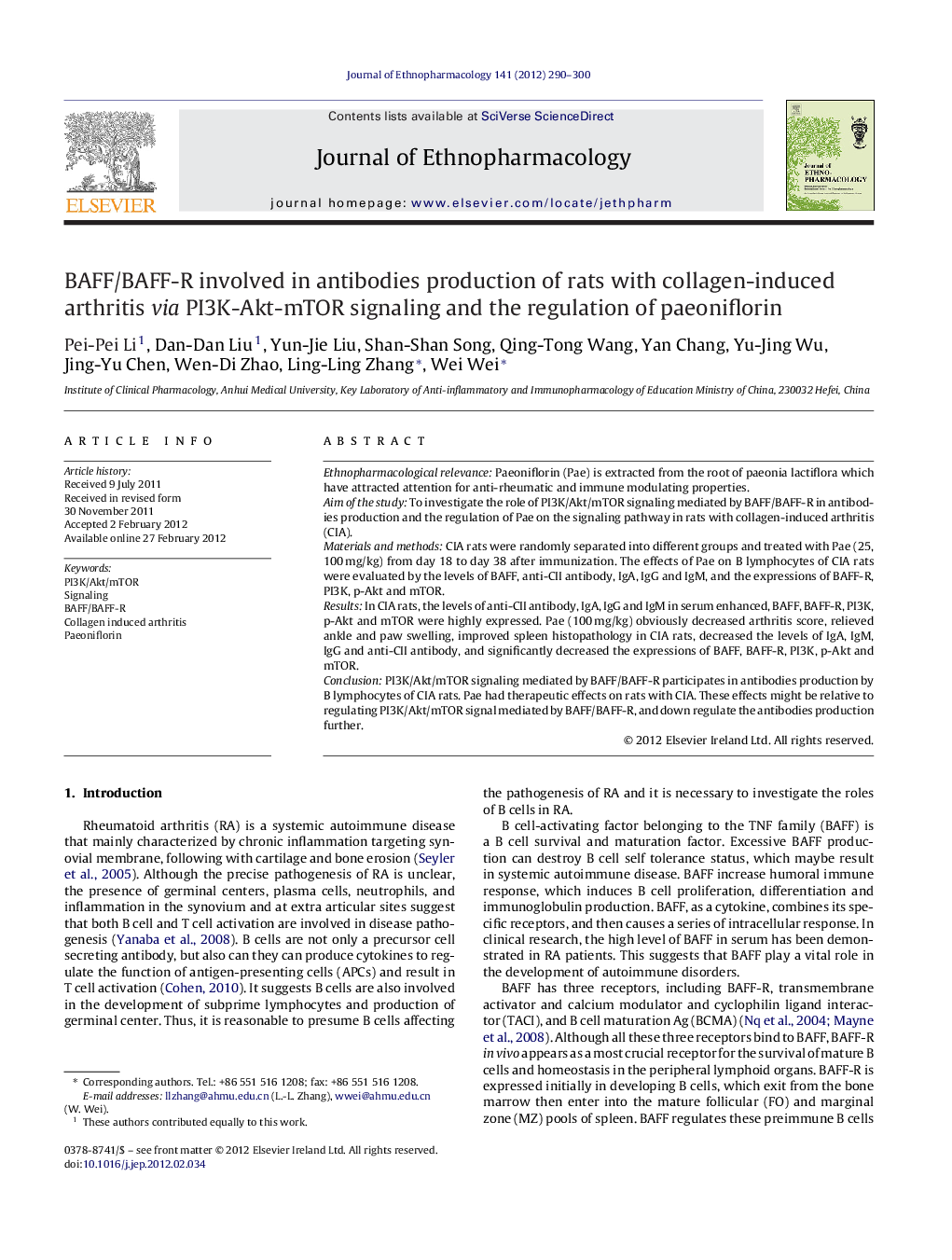| Article ID | Journal | Published Year | Pages | File Type |
|---|---|---|---|---|
| 5838226 | Journal of Ethnopharmacology | 2012 | 11 Pages |
Ethnopharmacological relevancePaeoniflorin (Pae) is extracted from the root of paeonia lactiflora which have attracted attention for anti-rheumatic and immune modulating properties.Aim of the studyTo investigate the role of PI3K/Akt/mTOR signaling mediated by BAFF/BAFF-R in antibodies production and the regulation of Pae on the signaling pathway in rats with collagen-induced arthritis (CIA).Materials and methodsCIA rats were randomly separated into different groups and treated with Pae (25, 100Â mg/kg) from day 18 to day 38 after immunization. The effects of Pae on B lymphocytes of CIA rats were evaluated by the levels of BAFF, anti-CII antibody, IgA, IgG and IgM, and the expressions of BAFF-R, PI3K, p-Akt and mTOR.ResultsIn CIA rats, the levels of anti-CII antibody, IgA, IgG and IgM in serum enhanced, BAFF, BAFF-R, PI3K, p-Akt and mTOR were highly expressed. Pae (100Â mg/kg) obviously decreased arthritis score, relieved ankle and paw swelling, improved spleen histopathology in CIA rats, decreased the levels of IgA, IgM, IgG and anti-CII antibody, and significantly decreased the expressions of BAFF, BAFF-R, PI3K, p-Akt and mTOR.ConclusionPI3K/Akt/mTOR signaling mediated by BAFF/BAFF-R participates in antibodies production by B lymphocytes of CIA rats. Pae had therapeutic effects on rats with CIA. These effects might be relative to regulating PI3K/Akt/mTOR signal mediated by BAFF/BAFF-R, and down regulate the antibodies production further.
Graphical abstractDownload high-res image (170KB)Download full-size image
